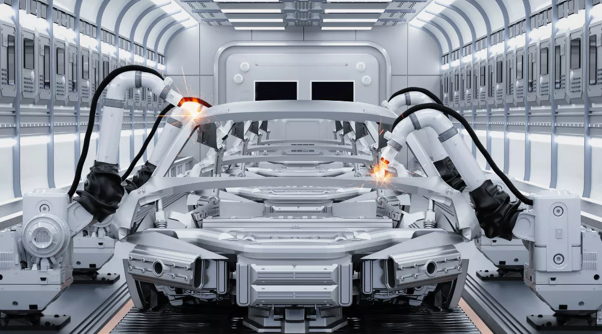Bangladesh is gearing up to substantially impact sustainable transportation with its first electric vehicle (EV) manufacturing plant, under development by Bangladesh Auto Industries Limited (BAIL), a subsidiary of Mango Teleservices. Located in the Bangabandhu Shilpa Nagar Economic Zone in Mirsarai, Chattogram, the state-of-the-art plant is expected to roll out its first electric vehicles by March next year. With a staggering Tk 1,440 crore investment, this project marks a significant leap forward for Bangladesh’s automotive sector and reflects the country’s commitment to sustainable development and innovation in the transportation industry.
Investment and Funding Structure
A unique financing structure is supporting this ambitious initiative. Ten banks, including Agrani Bank, have formed alliances, contributing Tk 790 crore to the project, with Tk 240 crore from Agrani Bank alone. The remaining capital is sourced from entrepreneurs involved in the venture. The plant is now in its advanced stages, with infrastructure work completed and machinery installations underway across the expansive 100-acre site.
Focus on Localized Manufacturing and Sustainability
Around 75 percent of the total investment will go towards manufacturing essential EV components, such as the vehicle body, battery, motor, and charger. The remaining 25 percent is allocated for importing interior design elements, ensuring these vehicles meet world-class standards in comfort and aesthetics. This facility will produce a range of vehicles, including sedans, SUVs, and buses, all under a proudly Bangladeshi brand name.
In parallel with the EV manufacturing plant, BAIL is also establishing Bangladesh Lithium Battery Limited, dedicated to lithium battery production. This Tk 750 crore investment will serve not only the automotive industry but also solar energy, data centers, and uninterruptible power supplies (UPS). Additionally, Mango Technologies Limited will manufacture motor control and charging systems for Tk 140 crore, with machinery imported via Mutual Trust Bank. Together, these factories contribute to a comprehensive, locally driven EV ecosystem.
Employment and Production Goals
BAIL’s initiatives are expected to provide significant employment opportunities, with an initial workforce of approximately 1,500, projected to expand to 5,000 as production scales. This workforce will support ambitious production targets of 60,000 two-wheelers, 40,000 three-wheelers, and 30,000 four-wheelers annually. The company’s objective is to foster local production under a homegrown brand, making Bangladesh a notable player in the regional EV market.
Infrastructure for Charging and Future Expansion
As part of BAIL’s strategic roadmap, the company plans to establish charging stations at petrol stations across Bangladesh, addressing a critical need for EV infrastructure. By integrating a charging network, BAIL aims to make electric vehicles more accessible to the public and encourage the adoption of clean transportation nationwide.
Conclusion
This landmark project by Bangladesh Auto Industries Limited stands to position Bangladesh as a leader in sustainable technology in South Asia. By building the country’s first EV manufacturing plant and supporting battery and motor component production, the initiative will contribute to job creation, local brand development, and reduced carbon emissions. With plans to integrate imported interior design elements seamlessly into the locally manufactured structures, BAIL is setting the stage to deliver high-quality, comfortable, and eco-friendly vehicles for local and regional markets.




